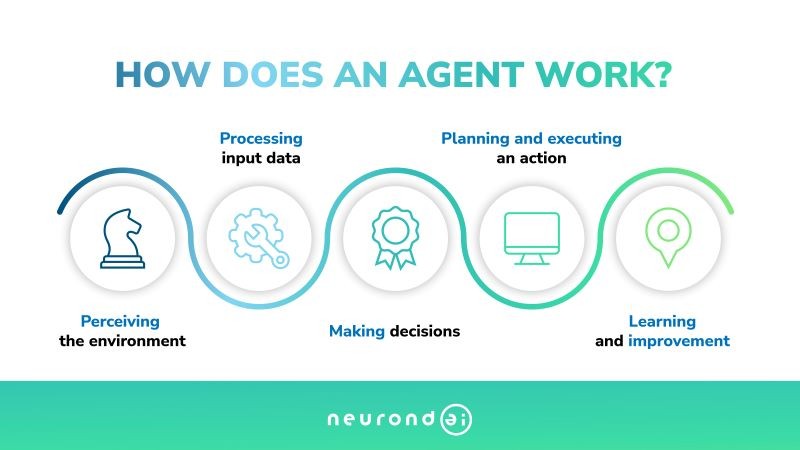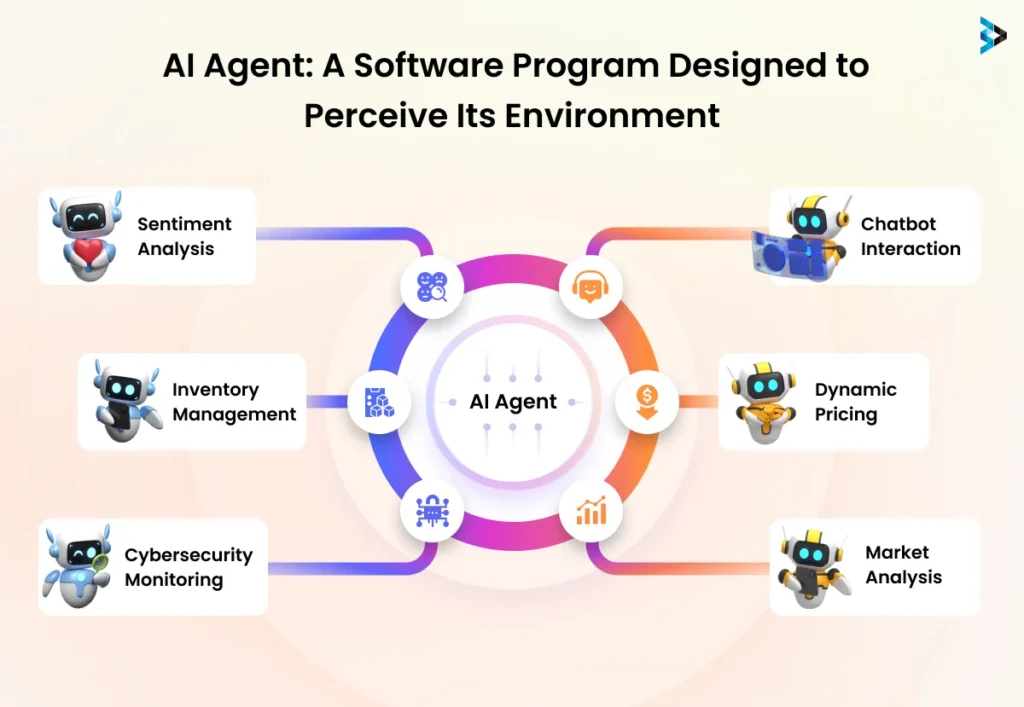Top Facts On Choosing An AI Agent Site For Business
Wiki Article
Companies Can Improve Their Finances By Using Ai Agents To Manage Subscriptions.
There are 10 ways AI agents could be utilized to automate subscription management for financial processes.
1. Automated Lifecycle Management of Subscriptions
AI agents manage subscriptions throughout their lifecycle.
Take care of new registrations aswell as upgrades, downgrades and cancellations.
You can automate renewals by sending reminders or confirmations in accordance with the preferences of customers.
2. Personalized Payment and Billing Options
AI Customizes Billing for Subscribers:
Discounts, prorated charges or trial extensions in a matter of minutes.
Provide flexible payment schedules dependent on patterns of customer use or their preferences.
3. Intelligent Customer Retention
AI improves customer retention by:
The identification of customers at risk is by their payment or usage patterns.
Sending out targeted offers or incentives to reduce churn.
4. Subscription Analytics & Forecasting
AI can provide real-time insight
Forecast subscription trends Revenue growth and forecast.
Define peak times to cancel or sign-ups and suggest strategies to improve.
5. Automated Pricing Based On Usage and Tiered Pricing
AI manages complex pricing models:
Automate calculation for usage-based or tiered pricing structures.
Be sure to bill accurately all services that are not being used or not utilized.
6. Communication and Notifications Streamlined
AI keeps customers informed:
Automated reminders for payments.
Customize your communications by studying customer behavior and preferences.
7. Fraud Detection During Subscriptions
AI identifies suspicious activities:
Detect unusual subscriber activities for example, failed payments.
Automatically flag accounts or transactions that appear to be fraudulent for investigation.
8. Simple Revenue Recognition
AI assures compliance with accounting standards:
Automate revenue recognition through calculating the beginning and end dates of subscriptions.
Produce detailed reports that satisfy the requirements of auditing and financial reporting.
9. Integration of CRM and ERP Systems
AI bridges to seamless operations
The synchronization of subscription data is done to ERP and CRM platforms.
Provide cross-departmental access to all subscription details.
10. Affinity Customer Service
AI enhances user satisfaction:
Recommend improvements or other services based on historic usage.
The flexible tuning of subscription plans can aid in reducing cancellations.
Through the use of AI solutions, businesses are able to optimize the management of subscriptions. They also improve customer satisfaction and achieve operational efficiency. Read the top rated AI agent for Overdue Invoice Alerts for website advice including AI agent for service level agreement monitoring, AI agent for vendor management, AI agent for audit preparation, AI agent for hardware asset management, AI agent for document redaction, AI agent for product launch planning, AI agent for finance, AI agent for purchase order compliance, AI agent for contract drafting, AI agent for supplier management and more.

Ai Agents Can Seamlessly Integrate With Existing Systems In A Variety Ways.
These 10 tips will assist you in integrating AI agents seamlessly with your current financial processes.
1. Automatic data synchronization across systems
AI agents can help ensure data flows by:
Data synchronization between ERP, CRM and accounting systems.
Reduce the requirement for manual entry of data and guarantee consistency across platforms.
2. Real-Time transaction processing
AI agents can enable real-time processing through:
Integrating with banks, payment gateways, and financial platforms, to process transactions immediately.
Make changes instantly to records on several systems to ensure that financial records remain current.
3. Cross-System Reconciliation
AI agents assist in reconciling data from multiple systems.
Automatically matching transactions from ERP, accounting, and payment platforms.
Identifying discrepancies in the data and resolving them with no manually input.
4. Unified Reporting and Dashboards
AI agents produce a unified report through:
The dashboard is able to combine data from various financial systems.
In-depth and real-time financial information as well as performance metrics that allow you to make better decisions.
5. Seamless API Integrations
AI is able to integrate with existing systems via APIs through:
Application Programming Interfaces, or APIs, provide a means to incorporate AI agents into existing software.
AI agents are able to process information, push it through systems, and then retrieve it.
6. Workflow Automation across Platforms
AI agents can automatize workflows
Automating processes, such as invoice payment, approval, creation and integrating systems.
Enhancing the efficiency and accuracy of financial transactions by cutting down on the need for manual intervention.
7. Intelligent Document Management
AI can manage documents across different systems:
Utilizing Optical Character Recognition and Natural Language Processing to extract and sort information from invoices and contracts.
Automatically uploading the data into appropriate systems (e.g., accounting software, document management systems) to allow storage and access.
8. AI-Driven Customer Relationship Management
AI is able to be integrated into CRM systems:
Analyzing customer data from financial systems in order to provide customized financial advice or products.
Automatically updating customer records by adding the history of transactions, payment behavior and other information derived from AI analysis.
9. Fraud Detection Across Financial Systems
AI enhances fraud detection by:
Continuously monitoring transaction data across multiple integrated platforms to detect anomalies.
Notifying relevant stakeholders of the possibility of fraud across all systems in real-time.
10. Predictive Analytic Integration
AI integrates with financial forecasting tools:
Revenues, cash flow and expenses are forecasted by using data from accounting and sales systems.
This information can be input into the financial planning system to help improve forecasting and budgeting.
Businesses can increase operational efficiency, increase accuracy, and speed up workflows by using AI agents that are integrated seamlessly with financial systems. Have a look at the best AI agent for Tax Management for site tips including AI agent for insurance clAIms processing, AI agent for contract drafting and review, AI agent for contact information verification, AI agent for collections management, AI agent for contract drafting, AI agent for finance compliance, AI agent for it support, AI agent for subscription renewal notifications, AI agent for billing dispute management, AI agent for clause analysis and more.

Ai Agents Are A Great Method For Companies To Ensure Compliance With The Rules And Regulations.
Here are 10 ways AI agents assist companies in complying with financial regulations.
1. Automating Regulatory Compliance
AI agents can simplify reports through:
Automatically generate the necessary compliance reports for regulatory bodies.
In ensuring that all documents are filed on time, you can lower the chance of being fined for non-compliance, or late filing.
2. Monitoring Transactions in Real Time
AI aids in ensuring compliance with anti-money laundering (AML) and the know-your-customer rules (KYC),
Monitor your financial transactions constantly in order to detect suspicious activity.
Flagging transactions that may be in violation of compliance regulations for example, large or unusual transactions or transactions across borders which require extra investigation.
3. Automated audits and Data Validation
AI agents help audits by:
Automated checks are used to confirm that the transactions and financial records are in line with internal policies and guidelines.
Check for accuracy and completeness of financial data. Be aware of any issues, mistakes or problems that could impact compliance.
4. Maintaining data Security and Privacy
AI can help meet data protection regulations (e.g., GDPR) by:
Secure transactional and sensitive customer data to ensure they are secure when they are transmitted and saved.
Automatically managing consent preferences, making sure the privacy of customers' data is used only in compliance with any legal agreement.
5. AI-Powered Fraud detection
AI aids in preventing fraud by:
Analyzing patterns of transactions to spot fraud or irregularities that may be in violation of the financial regulations.
Machine learning algorithms help predict and detect potential fraud risk. This reduces the likelihood of violations to the financial or legal requirements.
6. Change Recognition in the Regulatory Law
AI keeps businesses current through:
Monitor changes to relevant financial regulations such as taxes and reporting obligations.
Update your internal systems to keep up with the regulatory changes.
7. KYC and AML Compliance
AI assists in compliance by:
Automating KYC processes will help businesses comply with KYC requirements.
The analysis of customer data can help identify the possibility of money laundering by comparing behaviors to established risk profiles.
8. Risk Management and Assessment
AI enhances compliance by:
The assessment and prediction of the risks of compliance constantly by analyzing historical data including financial transactions, other factors, etc.
Recommending measures to mitigate identified risks, and ensuring the compliance of regulations.
9. Document and Contract Analysis
AI increases compliance through:
Use of natural language processing in the study of agreements, contracts and legal documents.
Automatically flagging terms or clauses that may be in conflict with legal requirements and assisting businesses to avoid any violations.
10. Tax Compliance Automatization
AI simplifies taxation through:
Automating tax calculations and filing helps ensure businesses comply with tax laws, and meet deadlines.
Analyzing transactional data to identify potential tax benefits, such as exemptions, deductions and exemptions.
Utilizing AI agents to assist in these areas, companies can ensure they maintain strict compliance with regulations, reduce the possibility of errors or omissions, as well as stay ahead of changes to regulations. AI agents' capability to automate and monitor evolving requirements, as well as changing to meet them is a crucial tool to ensure regulatory compliance. Read the expert AI agent for Customer Feedback Sentiment Analysis for more guide including AI agent for audit preparation, AI agent for billing collections, AI agent for complAInt resolution tracking, AI agent for information technology, AI agent for refund validation, AI agent for knowledge base management, AI agent for policy adherence, AI agent for learning and development, AI agent for customer communication, AI agent for supplier engagement and more.
